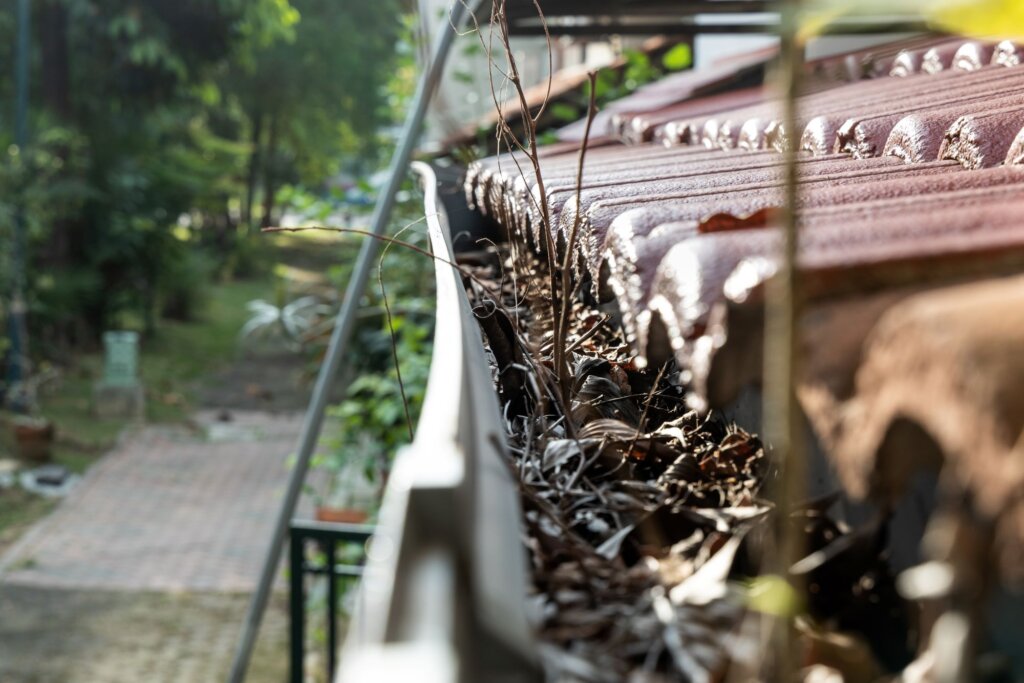When it comes to protecting your home from water damage, gutters play a major role. By directing rainwater away from your foundation, siding, and roof, they help prevent costly issues like leaks, mold growth, and structural damage. However, when gutters become clogged with leaves, dirt, and/or other debris, they can’t do their job effectively—leading to problems that can impact your home’s integrity (and your wallet).

The Dangers of Clogged Gutters
A clogged gutter might not seem like a big deal at first, but over time, it can cause serious damage to your home. Here are a few problems that can come up when gutters aren’t properly maintained:
- Roof Damage – When water overflows from clogged gutters, there is higher potential for roof damage such as rot, leaks, and other costly repairs. In colder months, this trapped moisture can contribute to ice dams, which further damage your roof.
- Foundation Issues – Instead of being directed away from your home through the downspout, water spills over clogged gutters and pools around the foundation. Over time, this can lead to cracks, basement flooding, and even structural instability.
- Siding & Exterior Damage – Water cascading down the sides of your home can cause staining, wood rot, and deterioration of your siding or brickwork.
- Pest Infestations – Stagnant water in clogged gutters creates a perfect breeding ground for mosquitoes, while damp debris can attract rodents and other pests.
- Landscape Erosion – If rainwater isn’t properly channeled away, it can wash away soil, damage flower beds, and create muddy patches in your yard.
How to Prevent Gutter Clogs and Costly Repairs
The good news is that preventing clogged gutters is simple with regular maintenance and a few easy upgrades.
- Clean Your Gutters Regularly – It’s typically recommended to clean your gutters at least twice a year—once in the spring and again in the fall. If you have overhanging trees, you may need to clean them more frequently.
- Inspect for Damage – While cleaning, check for cracks, loose fasteners, or sagging gutters that might need repair. Taking care of issues right away can prevent bigger problems in the future.
- Install Gutter Guards – These protective covers keep leaves and debris out of your gutters while allowing water to flow through freely. You’ll still need to clear away build-up from time to time, but you won’t need to scoop it out of the gutters themselves.
- Direct Downspout Drainage – Make sure downspouts direct water at least 3–5 feet away from your foundation to prevent pooling and erosion. Adding downspout extenders can also help improve drainage.
- Schedule Professional Maintenance – If climbing a ladder isn’t your thing, hiring a professional roofing contractor or gutter cleaning service can make sure your system stays in good shape.
Key Takeaways
Clogged gutters might seem like a minor inconvenience, but they can lead to serious (and expensive) home repairs if ignored. By keeping your gutters clear through regular maintenance and preventative measures, you’re protecting and investing in the long-term health of your home.